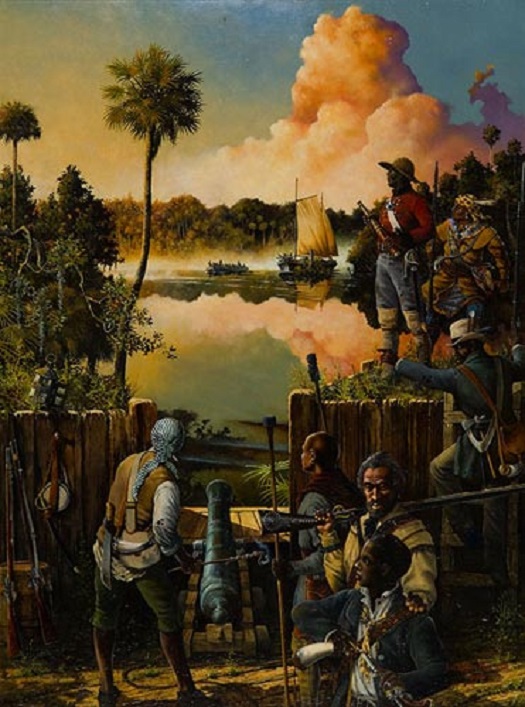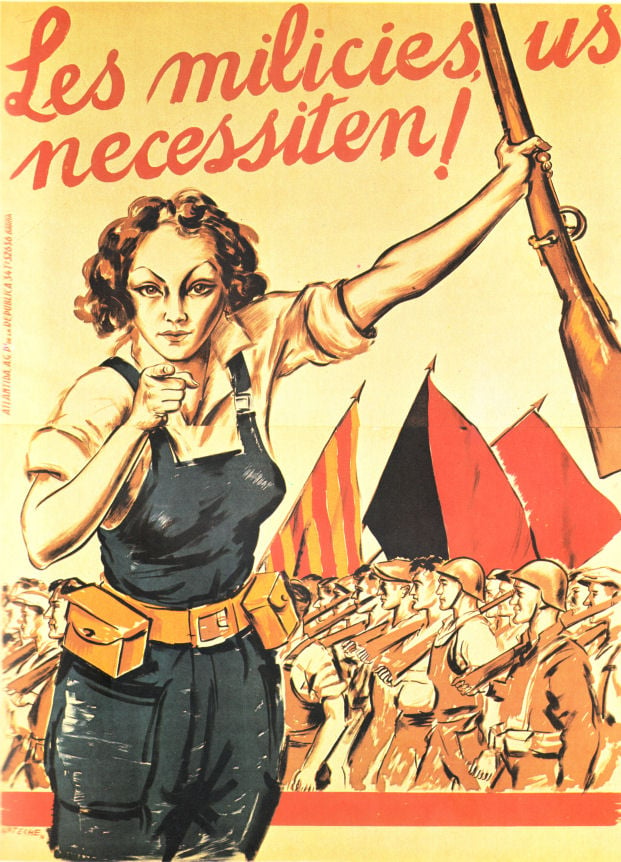Battle of Negro Fort (1816)
Sat Jul 27, 1816

Image: An illustration titled “Warriors from bondage” by Jackson Walker, depicting the attack on the Negro Fort from the Apalachicola River, 1816
On this day in 1816, American forces, along with their Creek allies, destroyed the “Negro Fort”, an abandoned British military fort manned by free black men, fugitive slaves, and Seminole warriors, killing hundreds.
When withdrawing at the end of the War of 1812, the British Commander Edward Nicolls intentionally left the fully-armed fort in the hands of troops that were largely free black men and fugitive slaves. Also at the Fort were Creek and Choctaw allies who had served alongside the British during the war.
As Nicolls hoped, the fort, near the Southern border of the United States, became a center and symbol of resistance to American slavery. The “Negro Fort” was the largest instance before the American Civil War in which fugitive slaves took up arms against the U.S. government that sought to enslave them.
On July 27th, American forces acting on orders from General Andrew Jackson committed to an all-out attack against the fort. From a boat on the river, the American forces used red-hot shot, trying to start a fire. A shot landed in the powder magazine, which ignited, blowing up the fort and killing over 270 people instantly.
Captured black survivors were re-enslaved in Georgia. The largest group of survivors took refuge further south, in Angola, Florida. Others founded Nicholls Town in the Bahamas.
Secretary of State John Quincy Adams later justified the attack and subsequent seizure of Spanish Florida by Andrew Jackson as national “self-defense”. Seminole anger at the U.S. for the fort’s destruction contributed to the breakout of the First Seminole War a year later.
- Date: 1816-07-27
- Learn More: en.wikipedia.org, arthurashe.ucla.edu.
- Source: www.apeoplescalendar.org
So the guy on the $20 bill was a general who decided to slaughter hundreds of black people for having the audacity to not want to be slaves any more.
I mean he also enacted the trail of tears. This feels mild for Jackson…
Oh it goes deeper than that. The Deprogram did an episode on “every US president is a war criminal”. There’s a bunch of others. You can post what’s in quotes to a search engine or YouTube and go to town


